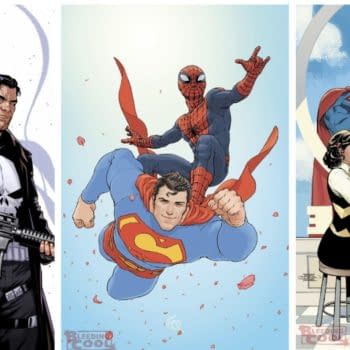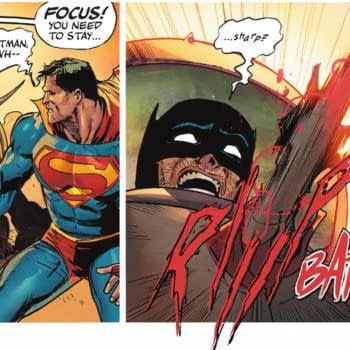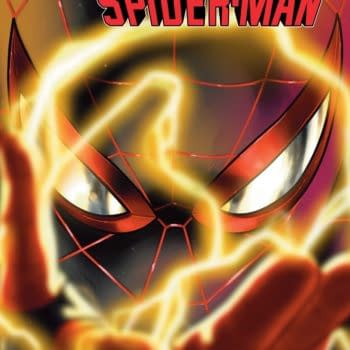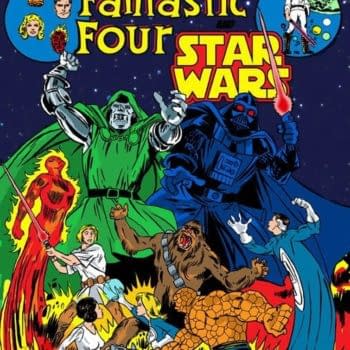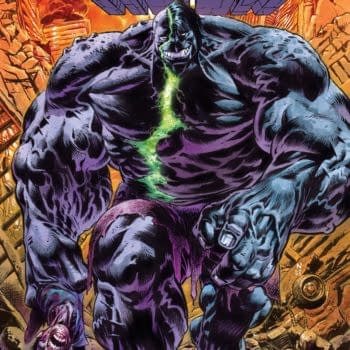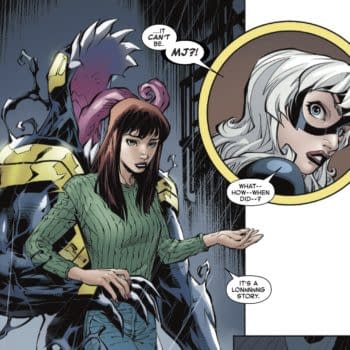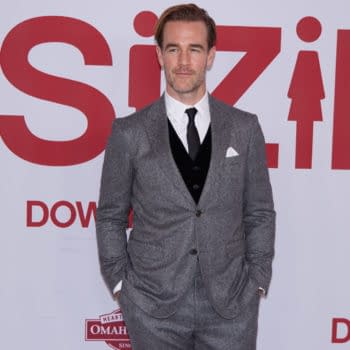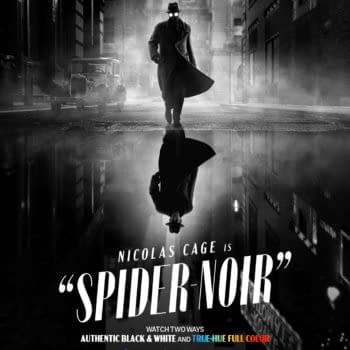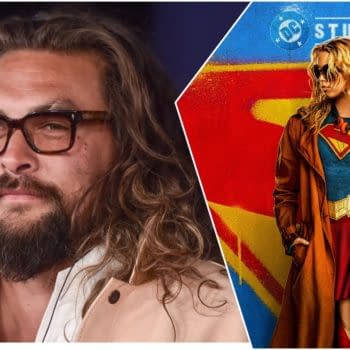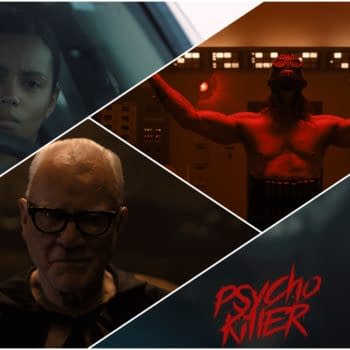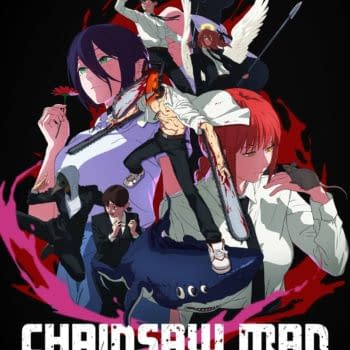Posted in: Comics, Movies, Recent Updates | Tagged:
Talking With Patrick Meaney – Greg Baldino And The Grant Morrison Documentary Director – Part One
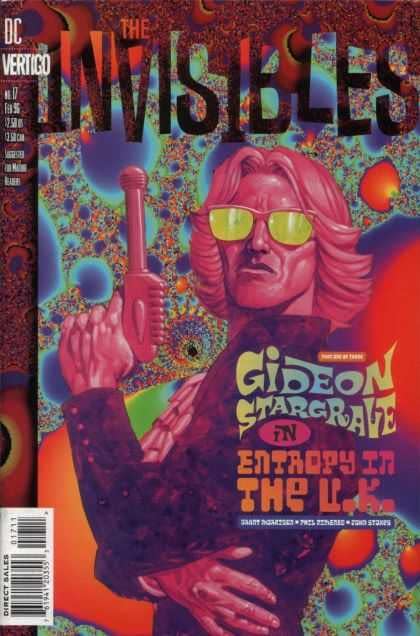
Following, Meany was kind enough to take the time to speak with Bleeding Cool about his highly anticipated film, and the work that spawned it, Our Sentence is Up: Seeing Grant Morrison's The Invisibles
What was the first work of Grant Morrison's that you discovered?
That would be The Invisibles. I didn't get into comics seriously until 2000 or so, and around that time I heard that The Matrix was 'stolen' from a comic called The Invisibles. So, I got the first volume and really enjoyed it, and as the series went on, I got more and more into it, and that led me to branch out to Grant's other work.
When was it that the series really clicked for you and went from being a comic you liked to a comic you loved?
There were two moments that really did it for me. I had always wanted to write a story from the perspective of a random soldier or goon in an action movie who gets shot, and when I got to the end of issue #12, "Best Man Fall," I realized that Grant had just done that. Part of me was frustrated that my story was out the window, but I loved the issue so much, I didn't care. That single issue is so dense and emotional, it's still one of my favorite stories in the book.
The other is the opening of issue #17, the first Phil Jimenez issue. It's a Gideon Stargrave fantasy sequence that turns the comic into this over the top pop spectacle was just so cool and stylish. I wanted to be living in that world, and from that point on, the series just kept getting better and better.
When you started writing the blog posts that became your book, what approach did you take to make your stab at Morrison's signature work unique?
I never really intended the posts to become a book or lead to anything bigger. I had read The Invisibles a few times, and wanted to find a way to engage deeper with the series, and go into some areas of it that I hadn't been able to figure out on my first times through. So, I figured why not do a really in depth approach and look at everything in the series. I'm always writing with a very personal approach, so particularly in the blog posts, and in the book too, it's a jumble of influences and ideas coming in from politics and other art.
What particularly struck me was how many of the concepts that initially seemed outre were becoming very real, and not in the ways you'd expect. We went to war in Iraq over imaginary weapons, and notions of truth have become very subjective in our culture, so it's the perfect time for a series that is all about reinventing yourself and fighting for a better fiction to supercede our reality.
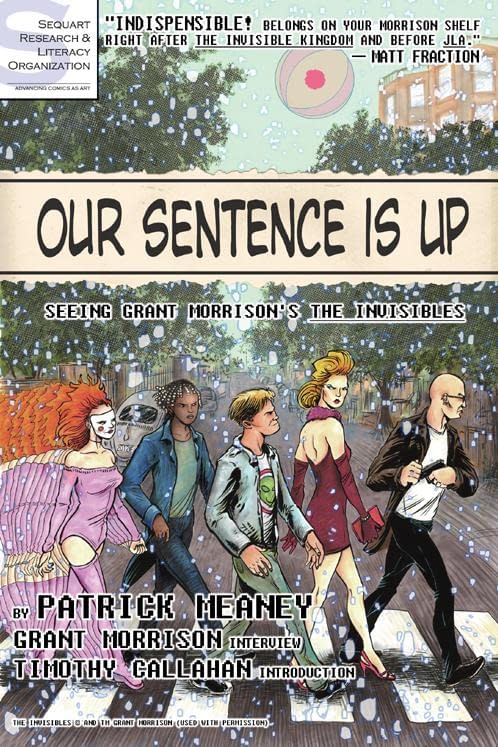
After doing these blog posts, Richard Bensam (who edited Sequart's recent Watchmen anthology) introduced me to Tim Callahan at New York Comicon '08. He was telling them that he wasn't sure about doing a follow-up to The Early Years, so they approached me about converting my blog posts into a book, and it seemed to work for everyone.
Between you and Tim Callahan, you've both covered Morrison's major works work up to the Millennium. What reception do you think a third volume covering his post-Invisibles work would receive?
I've talked about this, and sometime down the line, I might write that hypothetical third volume. I suspect that volume would probably focus largely on The Invisibles 'hangover,' and the way that the optimism of his late 90s and early 00s work, like the end of Invisibles, Marvel Boy and early New X-Men gave way to a lot of darkness in works like Seven Soldiers, The Filth and later New X-Men. It's a period that hasn't been explored as much, and one of my favorite eras of his work, so I think there's a lot of material there. And, I'd love to see works like Final Crisis divorced from the immediate controversy of their release and placed in the context of Morrison's overall body of work.
It seems like there's a whole new subsection of publishing dedicated to essays on comic book series. What is it about comics like The Invisibles, Watchmen, and Sandman that generate so much critical discourse?
It's primarily the quality and complexity of the work. All of the books you mentioned require a lot of unpacking and can be viewed from a wide variety of perspectives, so they're ideal for a variety of critical approaches. In the case of The Invisibles, the previous book about the series, Anarchy for the Masses, took a much broader approach to the series, with annotations explaining all the references, while I took a thematic approach, bringing a more subjective look to it. Both are equally valid, and I think the two books complement each other nicely.
Continued in Part Two
Greg Baldino lives and writes in Chicago, where he watches over the local comics scene like a posthuman autocrat. His fiction and journalism has appeared in many publications internationally. He can be contacted at greg.baldino@gmail.com






